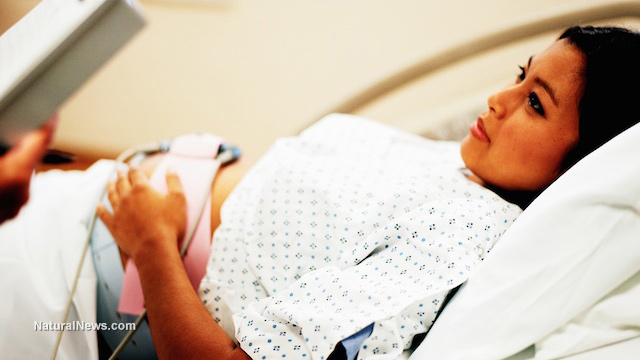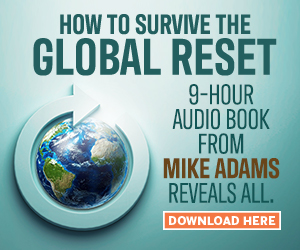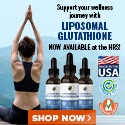Mainstream media now pushing chemotherapy during pregnancy
Saturday, October 10, 2015 by: David Gutierrez, staff writer
Tags: chemotherapy, pregnancy, mainstream media

- Newly released JFK files reveal Pentagon's role in creating Lyme disease and covid in the same lab
- Dr. Suzanne Humphries makes bombshell appearance on Joe Rogan podcast, exposing vaccine industry deception back to POLIOMYELITIS
- L.A.'s rebuilding nightmare: Only 4 permits issued after fire destroys 6,000 homes
- Discovery of vast underground city beneath Giza pyramids challenges human history
- Black cumin seed oil emerges as a powerful ally against breast cancer and chronic inflammation
- Catastrophic 7.7 earthquake devastates Myanmar and Thailand; death toll could reach 100,000
- AI breakthrough slashes celiac disease diagnosis time from months to minutes
- The hidden battle in your glass: How A1 and A2 milk could shape your health
- Sugar-free deception: Artificial sweeteners hijack hunger signals, fuel obesity epidemic, study warns
- Europe braces for WAR as EU urges citizens to STOCKPILE FOOD, in latest provocations with Russia
- Thomas Massie’s Dual Loyalty Disclosure Act aims to restore American sovereignty by cracking down on foreign influence in Congress
- Putin vows to 'finish off' Ukraine, accuses West of prolonging the war
- Aluminum pollution: A silent threat to human health
- Tesla owners under siege: Road rage, vandalism and political backlash fuel fear among drivers nationwide
- Kiss Your Genetic Privacy Good-Bye! 23andMe Gets Green Light to Sell Your Intimate Genetic Details to Anyone They Want
- Chaos in Amsterdam: Five injured in broad daylight knife attack near Dam Square
- "Feel G.O.O.D. Gut Health Program" on BrightU: Dr. Basima Williams introduces the Feel-Good Plate Method
- Trump's 25% auto tariffs: A bold move to strengthen U.S. manufacturing despite short-term challenges
- Newly released JFK files reveal Pentagon's role in creating Lyme disease and covid in the same lab
- Analysis: The coming economic collapse, a mass uprising and Trump's three secret weapons to halt the growing revolt
- Trump nominates VACCINE ZEALOT Susan Monarez to lead the CDC, sidelining RFK Jr.'s reform efforts
- Trump's greatest betrayal so far: Accelerating Middle East wars, silencing dissent, and serving Zionist masters
- Dr. Mike Yeadon releases 15-minute testimony - WATCH - about genocidal intent of COVID “vaccines”
- Festive flavors: The sweet history, nutritional profile and health benefits of pecan pie
- Elon Musk: Aliens could be here on Earth RIGHT NOW
- Big Pharma's $8 Billion bribery scheme exposed: how doctors are pushed to prescribe junk science, not heal
- 5 Simple steps to boost your brainpower: How to strengthen executive function in a distracted world
- Trump reverses course on Gaza plan, says “nobody is expelling Palestinians”
- A lack of integrity in Academia: Harvard professor found GUILTY of fraudulent research to promote CRT theory
- Reclaim your health: How midlife exercise reverses years of inactivity
- Survival 101: Effective EMF blocking techniques
- Florida takes a stand: DeSantis proposes permanent ban on mRNA vaccine mandates
- Sugarcane extract superior to cholesterol-lowering drugs?
- California's social media censorship law struck down: A victory for free speech or a threat to online safety?
- OpenAI whistleblower who dissented against how the company trained ChatGPT found dead
- EPA advisor admits the agency is funneling billions to climate groups ahead of Trump’s return to White House
- EPA advisor admits the agency is funneling billions to climate groups ahead of Trump’s return to White House
- Newly released JFK files reveal Pentagon's role in creating Lyme disease and covid in the same lab
- California's social media censorship law struck down: A victory for free speech or a threat to online safety?
- Dr. Mike Yeadon releases 15-minute testimony - WATCH - about genocidal intent of COVID “vaccines”
- The Health Ranger releases “Vaccine Zombie” song and music video, using AI-animated zombies for the music video
- The pandemic as a tool for INDOCTRINATION: Understanding “The Indoctrinated Brain” by Dr. Michael Nehls
- Florida takes a stand: DeSantis proposes permanent ban on mRNA vaccine mandates
- “Why we influenced the 2020 elections”: Facebook files reveal the coordinated effort to bury the Hunter Biden laptop story
- Mike Adams releases country western hit single: Goin’ Back in Time is Comin’ Home
- Mike Adams releases music poetry sensation: A Child of God
- Unpacking the Lies That We’ve Been Fed – new song and music video released by Mike Adams, the Health Ranger
- Michigan sheriff announces criminal investigation into 2020 election crimes, Dominion Voting Systems
- Migrants are taking advantage of recent hurricanes to scam residents and loot their homes
- House Intelligence Committee calls for the ARREST and PROSECUTION of Dr. Anthony Fauci
- RFK Jr. clears key hurdle: Sen. Susan Collins backs controversial HHS nominee, signaling a new era for health policy
- Rep. Nancy Mace introduces bill to ban biological males from female facilities on federal property
- Peter Rost exposes Big Pharma corruption in his book “The Whistleblower: Confessions of a Healthcare Hitman”
- Mike Adams releases new song and music video: Nothing More Disgusting Than a Globalist
- Red Cross issues warning to stop blood plasma donations from vaccinated people
- Scientists confirm: GENIUS brain function can be spontaneously unleashed in humans without any apparent cause
- EPA advisor admits the agency is funneling billions to climate groups ahead of Trump’s return to White House
- HYSSOP: What research reveals about the health benefits of this ancient holy herb
- Two containers with completed ballots fall out of truck in Florida
- Fully vaccinated about to see “tsunami” of illness and death, warns virologist
- Global leaders unite to clamp down on “misinformation” with UN-backed Cascais Declaration
- BREAKING: 2025 NDAA authorizes mandatory military draft of WOMEN across America… as Pentagon pursues global NUCLEAR war with both Russia and China at the same time
- Michael Yon warns of a ZIONIST TAKEOVER in Trump’s second administration
- BOMBSHELL: DNA testing kits are a SCAM to develop ethnic-specific bioweapons
- Ozempic and Wegovy weight loss drugs are injectable LIZARD VENOM PEPTIDES that may unleash a devastating wave of organ failure… side effects align with symptoms of SNAKE BITES
- Israeli soldiers accused of even more torture and abuse in the West Bank
- These 13 countries just signed an agreement to engineer a global FAMINE by destroying food supply
- NASA admits that climate change occurs because of changes in Earth’s solar orbit, and NOT because of SUVs and fossil fuels
- RFK Jr. clears key hurdle: Sen. Susan Collins backs controversial HHS nominee, signaling a new era for health policy
- Sermon 30: How Jesus reveals Caesar’s FAKE CURRENCY and FALSE AUTHORITY
- Coriander seeds: Ancient medicine backed by modern science
- Arizona officials claim Maricopa County needs 10-13 days to tabulate results of the election
"Our results show that fear of cancer treatment is no reason to terminate a pregnancy, that maternal treatment should not be delayed and that chemotherapy can be given," lead researcher Frederic Amant said.
But a closer look at the published study reveals that the data actually show no such thing.
What do they say they found?
The research was a follow-up from a prior study in which data were pooled together from different tests performed on children of different ages. This time, the researchers instead focused only on children up to three years old. Thus, even if its methodology were flawless, the study could at best show that no ill effects are seen from in utero exposure to chemotherapy within the first three years of life. Longer-term developmental or immune effects could not be tested or accounted for by this methodology.The researchers compared various health outcomes in children whose mothers had undergone cancer treatment during pregnancy with those of children whose mothers were cancer-free. The study found no difference between the two groups in terms of cognitive outcome; birth weight, length and head circumference; or incidence of medical problems and need for medical care. No connection was found between these outcomes and the number of chemotherapy cycles undergone by the mothers, which ranged from one to ten.
There's just one problem: the researchers did not actually compare chemotherapy with non-chemotherapy patients.
What did they really find?
The study was conducted on a small sample of pregnant women with widely varying cancer types — 18 in all. There were 69 cases of breast cancer, with the next most prevalent cancer type consisting of only 10 cases and most types represented by only one or two cases.Only 42 percent of the children were actually compared at the age of three years; the rest were compared at the age of 18 months due to a lack of follow-up data. Thus, even the modest claim that no ill effects were seen up to three years is an exaggeration.
The most fundamental problem with the study, however, is the way that "chemotherapy" was defined. In actuality, the "chemotherapy" group consisted of 129 women whose mothers had cancer while pregnant with them, whether those mothers got chemotherapy or not. In fact, only 74.4 percent of children in the "chemotherapy" group were exposed to chemo at all. Another 8.5 percent were exposed to radiation, 1.6 percent were exposed to other drugs, 10.1 percent had mothers who underwent only surgery and 10.9 percent had mothers who underwent no treatment. Thus, fully 21 percent of the "cancer treatment" group included children whose mothers did not undergo any chemical or radiological cancer treatment.
To top it off, the researchers admit that there was a much higher than normal rate of preterm delivery in the cancer group — 61.2 percent of children were born preterm, compared with average rates of only 6.8 to 8.0 percent in the countries where the study took place.
Preterm delivery is linked with significantly poorer infant health outcomes. But rather than comparing the children to babies born to cancer-free mothers at full term, the researchers compared them to children of the same gestational age, thereby masking any health effects of cancer-related preterm delivery.
Notably, many of the preterm deliveries were induced by doctors, in order to give mothers doses of cancer treatment known to be damaging to unborn children.
Finally, the study found higher rates of heart abnormalities in the cancer group than in the non-cancer group, a fact media reports have mostly ignored.
Were these abnormalities linked to the cancer treatment, or to the cancer itself? Due to the study's poor design, it is impossible to know.
Sources used:
DailyMail.co.uk
Reuters.com
NEJM.com
Chemotherapy at FETCH.news
Get independent news alerts on natural cures, food lab tests, cannabis medicine, science, robotics, drones, privacy and more.
Take Action: Support Natural News by linking to this article from your website
Permalink to this article:
Embed article link: (copy HTML code below):
Reprinting this article:
Non-commercial use OK, cite NaturalNews.com with clickable link.
Follow Natural News on Facebook, Twitter, Google Plus, and Pinterest
Science News & Studies
Medicine News and Information
Food News & Studies
Health News & Studies
Herbs News & Information
Pollution News & Studies
Cancer News & Studies
Climate News & Studies
Survival News & Information
Gear News & Information
News covering technology, stocks, hackers, and more



"Big Tech and mainstream media are constantly trying to silence the independent voices that dare to bring you the truth about toxic food ingredients, dangerous medications and the failed, fraudulent science of the profit-driven medical establishment.
Email is one of the best ways to make sure you stay informed, without the censorship of the tech giants (Google, Apple, Facebook, Twitter, YouTube, etc.). Stay informed and you'll even likely learn information that may help save your own life."
–The Health Ranger, Mike Adams













































